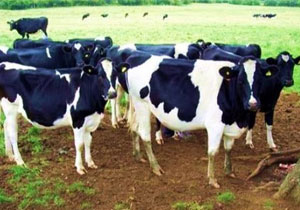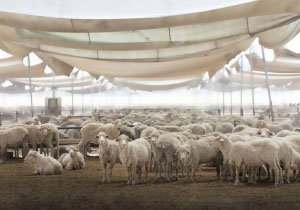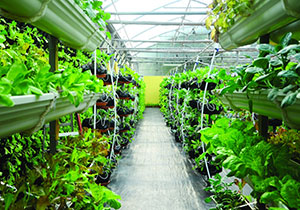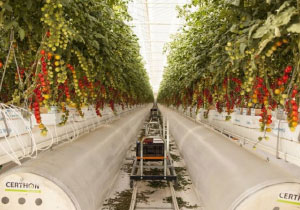The wall's cover (polycarbonate)
- Super User
- The wall's cover (polycarbonate)
- Hits: 112
Greenhouse coverage
The most important feature of the greenhouse coverage is to ferry the maximum amount of heat and sunlight and deliver it to the plant.
None of the coverage has 100 percent of light and heat transformation; because some of the light is reflected or absorbed into the cover. Among different covers in terms of light passing, glass is in the first rank, and the plastic cover is in the second place.
Different types of the greenhouse cover
Glass cover
The quality of the glass and its dimension is effective in light passing. The more percentage of iron more canescent is the glass and ferry a lower amount of light. The larger pieces of glass are better than the small ones in terms of light crossing. The greenhouse with a glass cover is the most expensive type of greenhouse, and its building and conservation are higher than the plastic cover.
Plastic cover
To cover greenhouses, thin plastic plates are used such as polyethylene, polyester, vinyl polychloride (P.V.C), Polyvinylidene difluoride (P.V.F).
Polyethylene is the most useful one in the greenhouse cover. Almost all of the recent greenhouses are of two layers. Used polyethylene to cover greenhouse, including Anti (UV) ultraviolet radiation. One of the advantages of these covers is that it needs no heavy skeleton, and it decreases the warm-up costs by up to 40% compared to the one-layer glass greenhouses.
The wall's cover (polycarbonate)
The polycarbonate plate for covering the greenhouse should be transparent to provide the maximum amount of required light for plants inside the greenhouse. Over time and with finding the polycarbonate plate and discovering its advantages, considering the disadvantages of UV nylons, it could replace the nylons. Even though, they are used in some of the greenhouses.
Polycarbonate plates
Polycarbonate plates are available in transparent or can scent colors and are one or multi-glazed. Among transparent multi-glazed plates, one-glazed shutters and rolls plates are used as a common cover for greenhouses. This type of coverage can preserve the place heat as twice as polyethylene. 90 % of light transmission (which is so important as we discussed earlier) and two-glazed type of it is appropriate.
Pressure tolerance is 200 times larger than the glass.
Polycarbonate weight is 1/6 of the glass weight, and it can be cut, saw, pierced, and nailed.
This type of coverage can hold ultraviolet radiation and prevent its transmission to the plant inside the greenhouse. It has a high durability with a longevity of 10 years.
It is more fire-resistant than plastic.









